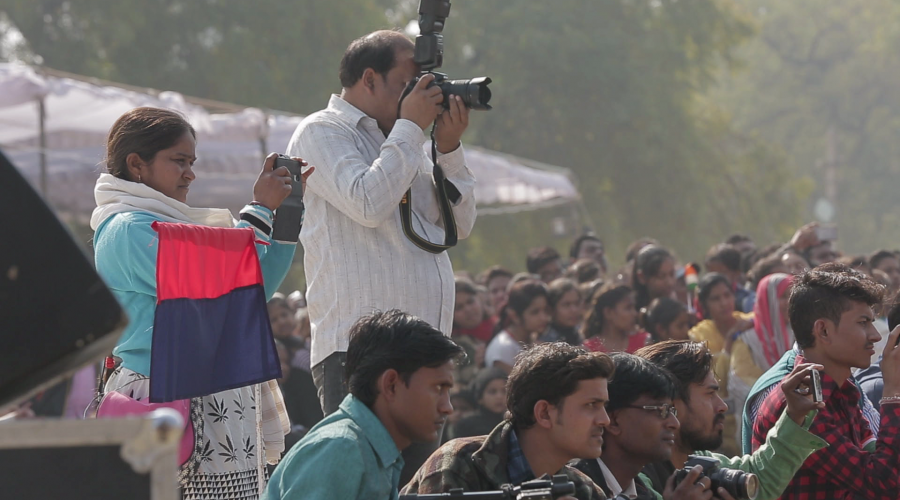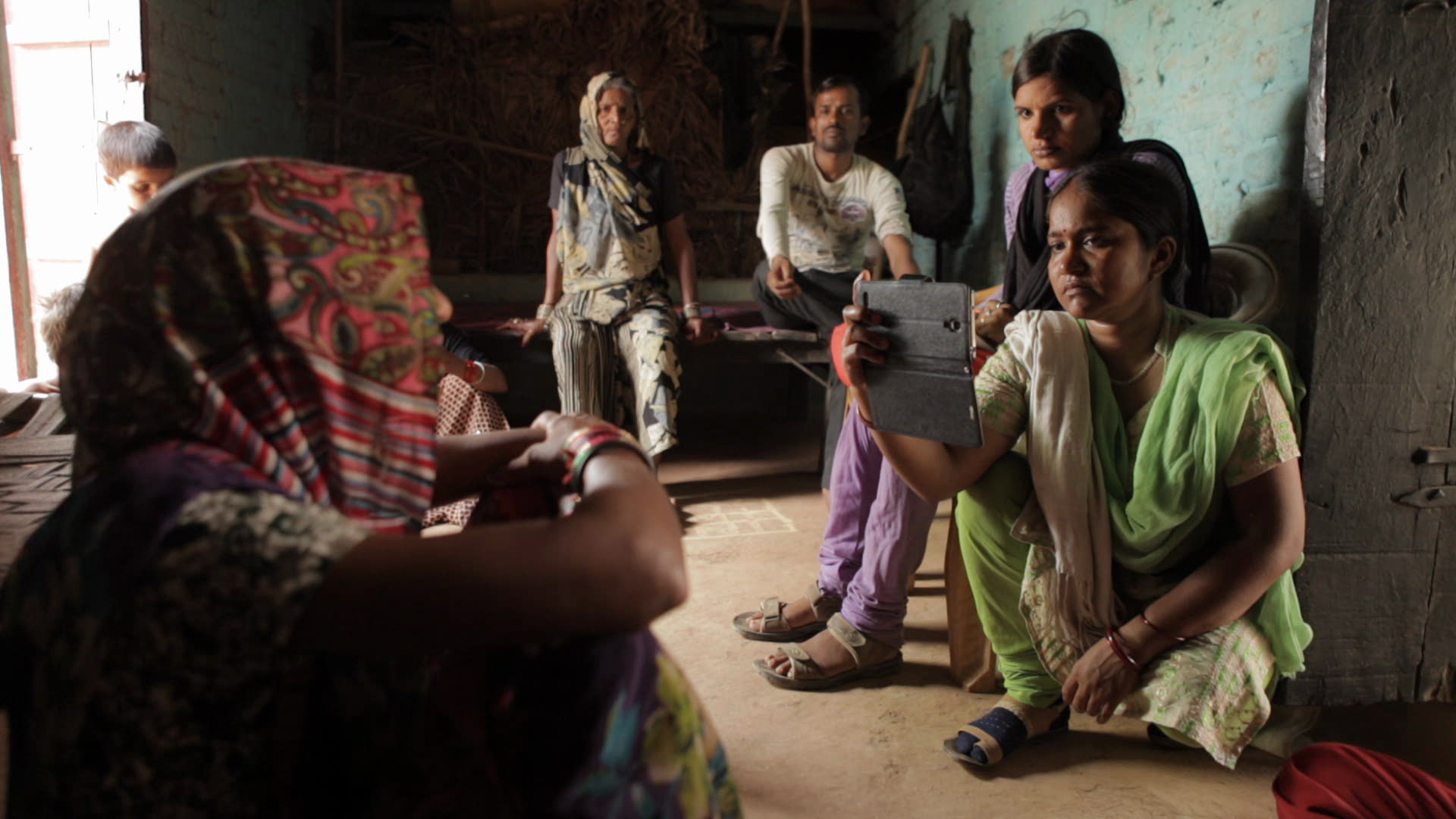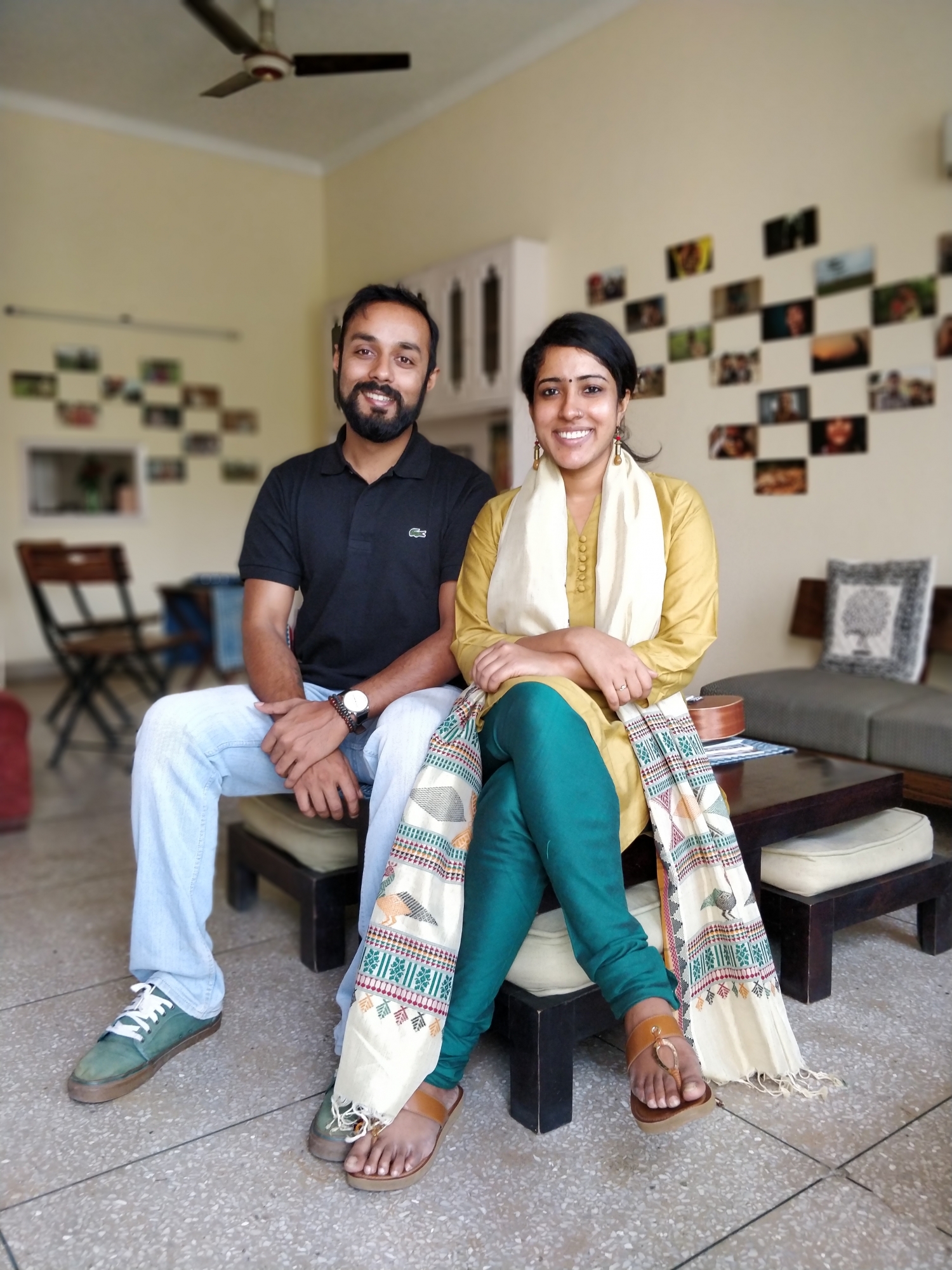Khabar Lahariya - Brave journalists who are shaking the very foundations of traditional society
The struggle of female journalists who managed to rise above class and caste divisions in the harshest of social circumstances is the focus of the film Writing with Fire, which will be screened at the 4th AJB DOC.

Author: Elma Ljubčić
In a highly competitive and male-dominated world of news, the only newspapers in India run entirely by women from the Dalit caste have emerged.
Defying the
caste system in the society hostile to women, especially to those of the Dalit
caste, Meera, the chief journalist of Khabar
Lahariya, and her reporters managed to shake the very foundations of
traditional society, challenge the status of women in such environment, overcome
societal boundaries and what is most important- inspire others to follow their
example and fight for their rights.
Writing with Fire, a film by Indian duo Rinto Thomas and Sushmit Ghosh, which will be screened at the 4th AJB DOC Film Festival, focuses on the struggle of female journalists who, through their work, managed to rise above class and caste divisions in the harshest of social circumstances.
"Women
from the Dalit caste have always been portrayed in the media as wretched
victims of their destiny, but in this film we have portrayed the Dalit women as
they are - modern, strong, inspiring women who can do anything. The very format
of the documentary film allowed us to show the transformation of our main protagonists,
over a period of time, and to realistically tell their stories. This film is in
a way a guidance to others, shown on a real example ", say Thomas and
Ghosh in an interview for Al Jazeera.
How did you learn about Khabar
Lahariya and what inspired you to make a documentary about these women?
Rintu Thomas: In 2016, we came across
a beautiful photo story online, where a woman journalist was distributing
newspapers in a media-dark village. This image intrigued us and we followed it
to discover Khabar Lahariya, India’s
only newspaper run entirely by women. Working in the rural heartlands of the
state of Uttar Pradesh, these women had been stirring a quiet revolution for 14
years by running a newspaper that reframed the understanding of who counts, who
belongs and who decides what news is. We got invited to attend a meeting where
they were debating a transition from print to digital. The energy in that room
was a heady mix of excitement, nervousness, cynicism - semi-literate women,
most of whom had never touched a smartphone were setting themselves up to a David
vs Goliath challenge. It was a moment which instinctively spoke powerfully to
both of us and we decided to embark on this journey with them, telling the
story from the inside.

Can you tell me more about your
experience of making this documentary – how long did it take you to finish
filming? What was the biggest challenge in making this film and how did you
overcome it?
Rintu Thomas: Very early on, we understood this was going to be an intersectional
story – caste, gender, media and politics coalesce in a deeply intimate way. Which
made this quite a difficult film to pitch. What is the story going to be, what
are the narrative arcs of the characters, how much time would we need to spend
with each character to experience the depth of her being, how would this
specific story about India resonate with a global audience – these were
questions we grappled with continuously. Not having a secure development budget
to fall back on, made us invest our own money into the first two phases of
filming. We used this material to create a pitch trailer and set ourselves on a
path to keep pitching the project at every global pitch forum and opportunity.
Slowly support started trickling in and kept different aspects of the film
buoyant.
One of the things we decided early on was to cut the scenes
after every filming schedule, and see how they are playing out when pieced
together. There were many paths to take, with all the layers of characters,
storylines and themes, but that process gave us clearance as to which ones to
follow through. We’ve both been editors on our previous indie shorts, so
finding each other on the same page (broadly!) was a nice, reassuring feeling.
We followed that instinct and that’s also how we became the editors of our
film.
In this movie, your focus is on three
women working at the Khabar Lahariya. How did you choose them?
Rintu Thomas: There is always a moment in the process of making a film when you know
in your bones that this is the story you want to tell. That conviction for us
happened in the meeting where the Khabar
Lahariya team was discussing the shift to digital. Meera was leading the
meeting and she was fielding questions, dispersing self-doubts, articulating a
bold vision for the newspaper - armed with a quiet panache. She is a natural
leader, a master negotiator and has the skill of accepting the camera as an
additional person in the room. Very instinctively both of us knew she had to be
a protagonist central to the story. Challenging her through the course of this
meeting was Suneeta - young, ambitious, with no deference to authority. We gravitated towards Suneeta because she is a
force of nature, someone who wears her passion on her sleeves and a foil
character to Meera’s calm, almost stoic personality. Shyamkali, on the other
hand, was someone who is invested in the idea of change, but equally fearful of
technology that she needs to master in order to get things moving. As you see
in the film, she’s the slowest to warm up to technology, extremely sceptical of
the shift to digital but when she does pick up the ropes of digital journalism,
she flies.
In many ways, we were extremely fortunate to follow
the lives of three women with very distinct personalities, personal histories
and journeys.

These women are doubly discriminated, but nothing stopped them from giving voice to the voiceless and trying to make their society a better place to live. What is the impact of their effort on Indian society?
For us, the greatest impact is in the way Khabar Lahariya has dismantled the
notion of what a Dalit woman can aspire to achieve and articulate. Working in a
region where being a journalist has traditionally been the bastion of men, to
have professional women journalists holding truth to power through a smartphone
has revolutionised the way women are perceived and respected. The success or
failure of the newspaper with this risky shift was immaterial to us – what we
were more interested in was understanding how these women understood the world
and made their place in it. They were creating their own agency in challenging
age-old systems of power, where the dynamic force of digital technology and
impact was inevitable. So it was not entirely surprising to see roads and
electrical infrastructure being set up in remote villages, education and
healthcare centres being made accessible to remote communities, sexual violence
cases being reported in police stations and pro-active action being taken by
the administration based on Khabar
Lahariya’s relentless reporting. Many journalists have told us that when
they watched such tangible impact in the film, it’s an emotional moment as it
reminds them of the very reason why they chose to take up the profession.
India is one of the most dangerous places
on earth for women and one of the deadliest nations for journalist. Do you
think that women, such as journalists from Khabar Lahariya, can
change it?
Sushmit Gosh: The journalists at Khabar Lahariya represent the best that India has to offer –
citizens questing for truth and ensuring justice and equity for all. And what
makes their work even more phenomenal are the circumstances that they are
operating in, in regions which are both physically and metaphorically hostile.
Having said that, women across the world continue to wage their own battles
against systems of repression that are built into their societies. For
instance, even now, most European countries do not define sex without consent
as rape. And countries like Sweden, UK, Australia and the US, which are high on
democratic indices, still report among the highest rates of rape in the world.
We feel the universal love that Writing
With Fire has found across the world, has primarily also been because of
this demographic – where women across geographies have witnessed the power and
strength of Meera and her journalists, to not only overcome their own difficult
situation, but to shine a light for all.
Are you working on new projects? Can you
tell me more about it?
Rintu Thomas: We’re currently
developing a limited unscripted series that is set in a very different context
and genre from Writing With Fire or
any of our earlier shorts. It is that exciting phase of stepping into the world
of a new story, a new adventure.